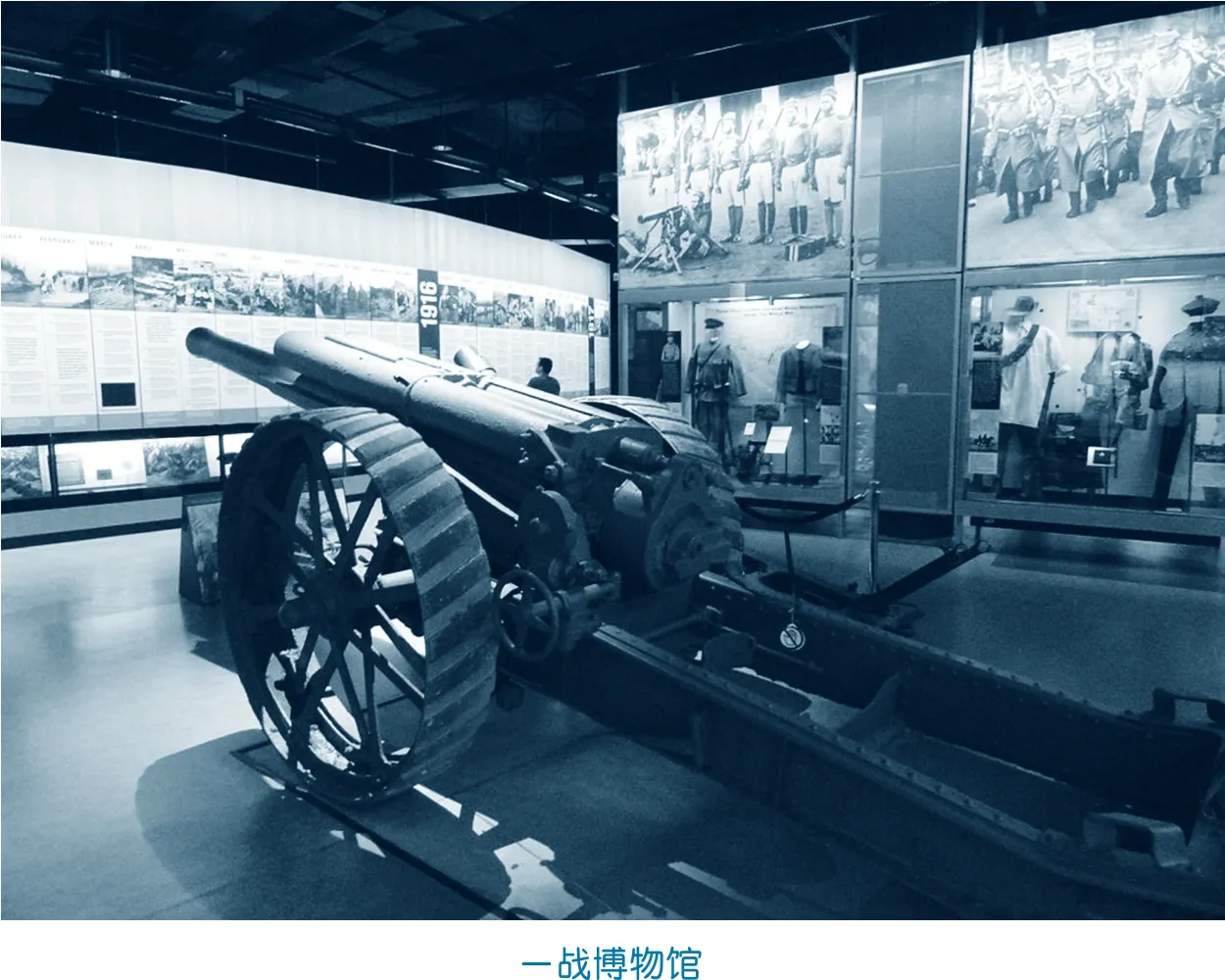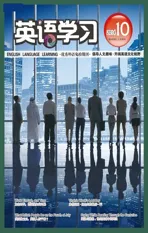First World War—a Century on,Time to Hail the Peacemakers
2014-12-19AdamHochschild
Adam Hochschild
∷思含 选 刘宇佳 注
If we were still naming wars as colourfully as they used to—the War of the Spanish Succession, the War of Jenkins’ Ear1. War of the Spanish Succession: 西班牙王位继承之战(1701—1714),由于西班牙哈布斯堡王朝绝嗣,法国波旁王室与奥地利哈布斯堡王室为争夺西班牙王位而引发的一场欧洲大部分国家参与的大战;War of Jenkins’ Ear: 詹金斯的耳朵战争(1739—1748),大不列颠与西班牙之间的一场军事冲突,西班牙帝国最终获胜。—we should call the one that began 100 years ago today the War of Unintended Consequences.
No one, certainly, intended to create what Winston Churchill would later call a “crippled2. crippled: 受重创的,残废的。, broken world”.Austria-Hungary, which declared war on 28 July 1914,merely wanted to dismember Serbia, where irredentists were stirring up ethnic Serbs in Austrian territory.3. Austria-Hungary: 奥匈帝国;dismember: 瓜分;Serbia:塞尔维亚,南斯拉夫成员共和国名;irredentist: 民族统一者。Russia, which backed Serbia, wanted to come to the aid of fellow Eastern Orthodox Slavs, and to undo the racial humiliation of losing a war to Japan a decade earlier.4. back: 支持;Eastern Orthodox: 东正教,又称正教会或正统教会,是基督教的主要宗派之一;Slav: 斯拉夫人,欧洲各民族和语言集团汇总人数最多的一支;undo: 去除;humiliation: 耻辱。Once the fatal tangle of alliances had drawn more countries into the con flict, each one claimed that it was only defending itself against a conspiracy of its enemies.5. 各同盟国的重大纠纷使越来越多的国家加入到冲突中来,每个国家都声称是为了抵御敌国的阴谋。fatal: 重大的,致命的;tangle: 纠纷;alliance: 同盟国;conspiracy:阴谋。Granted, desire for territory lay beneath the surface—France dreamed of recapturing the lost Alsace-Lorraine,for example, and Germany of establishing its primacy over the tottering tsarist empire in eastern Europe—but these ambitions, too, were limited, not world-changing.6. 当然,人们会掩饰自己想要掠夺领土的欲望——比如说,法国试图夺回失去的阿尔萨斯—洛林,德国欲在东欧动荡的独裁制帝国中占领首位——但是,他们这些野心也都是有限制的,并未改变世界。recapture: 收复,夺回;Alsace-Lorraine: 阿尔萨斯—洛林,法国东北部地区;tottering: 动荡的;tsarist: 独裁制的,沙皇式的。

一战牺牲战士墓碑
回首一战,已是百年。这场史无前例的战争给人类带来了巨大的灾难和创伤。无数的士兵和无辜的民众在战争中死去,呼吁和平的人们也总是受到战争发动者的打压,遭受着辱骂和囚禁。而战后,一座座纪念碑平地而起,书写着战士们的丰功伟绩,却很少有人会为和平主义者竖起一面高旗。人们不禁感叹,难道和平主义者们就不值得我们去纪念吗?
Look, however, at what the war wrought7. wrought: v. 造成巨大破坏,wreak的过去式。. More than nine million troops were killed, and, depending on how you count them, as many as 10 million civilians. In Turkey, Russia, the Balkans and elsewhere,unprecedented millions of people became homeless refugees.8. Balkans: 巴尔干半岛各国;unprecedented: 空前的;refugee:难民。Some 21 million soldiers were wounded. In Britain, 41,000 men had one or more limbs amputated; in France, so many had mangled faces that they formed a National Union of Dis figured Men.9. amputate: 截肢;mangled face:毁容;dis figured: 破相的。The toll was particularly appalling among the young. Of every 20 British men between 18 and 32 in 1914, three were killed and six wounded.Surely many a family shared the feelings of a despairing couple who engraved on their son’s tombstone at Gallipoli: “What harm did he do Thee, O Lord?”10. engrave: 雕刻;Gallipoli: 盖里博卢半岛;thee: 你,古英语thou的宾格。
Beyond the carnage11. carnage: 大屠杀。, the war changed our world for the worse in almost every possible way. Without the vast slaughter, misery and upheaval of the war, would the most extreme group of revolutionaries still have come to power in Russia?12. slaughter: 屠杀;upheaval: 动乱;revolutionary: 革命分子。And in Germany, the war left a toxic legacy of resentment that Hitler would brilliantly manipulate to win power.13. toxic: 有毒的;resentment: 愤恨;manipulate: 操纵。Already by 1918, rightwing Germans were blaming the country’s military setbacks on the Jews. It is impossible to imagine the Second World War without the first.

We will be asked to do a lot of commemorating14. commemorate: 纪念。over these next four and a half years, but whom and what should we commemorate,and in what spirit? Today most people would surely agree that the war of 1914-1918 was not fought for the lofty motives that each side claimed, and that we all would be better off if it had not been fought at all.15. lofty: 崇高的;be better off: 境况富裕,更舒适。Before he died, Harry Patch, the last surviving British veteran16. veteran: 老兵。of the war, said it best:“It was not worth even one life.” Yet all the traditional ways we remember wars make little space for this feeling.17. 然而,人们所有纪念战争的传统方式都没有考虑到这种感受。
Think, for example, of the hundreds of cemeteries that spread across the old Western Front,18. cemetery: 墓地;Western Front:西方战线,用来形容整个一战或二战中位于德国以西,协约国以东的军事争夺。这种“武装边境争夺”的形式在整个战时被称为“战线”。the densest collection of young men’s graves in the world. All are immaculately19. immaculately: 洁净整齐地。maintained by the Commonwealth War Graves Commission and its counterparts from other countries. One of the most beautiful is on a hillside outside the French town of Albert and holds the remains of some 160 British soldiers, almost all killed on the first day of the Battle of the Somme20. Battle of the Somme: 索姆河战役,是一战中期英法军队在法国北部索姆河地区对德军阵地的进攻作战。—a particularly senseless battle in a particularly senseless war. Among the comments in the visitors’ book one recent summer day were: “Paid our respects to three of our townsfolk,” “Thanks, lads,” and“Sleep on, boys.” Only a single visitor, out of hundreds, struck a different note: “Never again.” Of course we should remember the dead, especially those whose lives were tragically cut short in their youth. But there is a vast difference between honouring the memory of a family member and honouring the cause for which he died.
The customary ways of looking back on war too easily allow us to confuse the two: military cemeteries with the gravestones in ranks like soldiers on parade, parades themselves, statues (which are almost invariably of generals), and war museums and their exhibits of tanks, planes, machine guns, artillery pieces and other technology for meting out death.21. 人们回顾战争的习惯性方式使我们太容易混淆那两点:一排排如游行列队般的军事公墓,阅兵式,雕像(几乎总是将军),战争博物馆,以及坦克、飞机、机关枪、重炮群和其他一些致命技术的展览等。customary: 习惯的;parade:游行,检阅;artillery: 火炮;mete out: 给予。Let us remember the dead, yes, in these years ahead, but let us also remember the men and women who recognised the war for the madness it was and did all they could to stop it. In Germany, radicals like Rosa Luxemburg and Karl Liebknecht were jailed for their opposition, as was the American socialist leader Eugene V. Debs22. Rosa Luxemburg: 罗莎·卢森堡(1871—1919),国际共产主义运动史上杰出的革命家,被列宁誉为“革命之鹰”;Karl Liebknecht: 卡尔·李卜克内西(1871—1919),德国共产党创始人之一,国际共产主义运动中著名的宣传鼓动家和组织家;Eugene V. Debs: 尤金·V. 德布斯(1855—1926),美国工会领袖,国际工人联合会与世界产业工人联盟创始人之一。—who was still in prison in 1920 when he received nearly a million votes for president. The pioneer social worker Jane Addams23. Jane Addams: 简·亚当斯(1860—1935),美国社会学家,因争取妇女、黑人移民的权利而获1931年诺贝尔和平奖。helped organise a conference in neutral Holland in 1915 that brought together women from warring countries on both sides. The great French political leader Jean Jaurès spoke out boldly and repeatedly against the war he saw coming, and, because of this, was assassinated in a Paris cafe several days before it began.24. Jean Jaurès: 让·饶勒斯(1859—1914),法国社会党领导人、历史学家,主张教会与政府分离;assassinate: 暗杀。
No country should be more proud of its anti-war activists from that era than Britain. More than 20,000 British men of military age refused conscription, and,usually because they also refused the alternative work offered conscientious objectors—which could be in a munitions factory25. conscription: 征兵;conscientious objector: 基于道德或宗教信仰不肯服兵役者;munitions: 军需品。—more than 6,000 went to prison for their beliefs. Behind bars also for their opposition to the war were Britain’s leading investigative journalist, Edmund Dene Morel, and its greatest philosopher, Bertrand Russell26. Bertrand Russell: 伯特兰·罗素(1872—1970),20世纪西方最著名、影响最大的学者及和平主义社会活动家之一。.
Why is there no blue plaque outside Pentonville prison, where Morel served six months at hard labour, honouring the other war resisters locked up there as well?27. 莫雷尔在本顿维尔监狱服役六个月,为什么监狱外面没有摆放蓝色牌匾来纪念他,以及其他被囚禁在这里的战争反对者呢?blue plaque: 蓝色牌匾,一种安置在公共场合的永久标记,以纪念某地与某个有名事件或人物之间的关联。Every leading country in North America and Europe has spruced up28. spruce up: 打扮,装修。its war museums for these anniversary years, but why are there so few museums about those who fought for peace?


尤金·V. 德布斯

伯特兰·罗素

埃米莉·霍布豪斯
Russell wrote eloquently about his own con flicted feelings,describing himself as being “tortured by patriotism… Love of England is very nearly the strongest emotion I possess, and in appearing to set it aside at such a moment, I was making a very dif ficult renunciation.”29. eloquently: 雄辩地;torture: 折磨;patriotism:爱国主义;renunciation:放弃,宣布终止。Yet he never ceased to believe that “this war is trivial30. trivial: 微不足道的。, for all its vastness. No great principle is at stake31. at stake: 处于危险中,在紧要关头。,no great human purpose is involved on either side… The English and French say they are fighting in defence of democracy,but they do not wish their words to be heard in Petrograd or Calcutta”.32. Petrograd: 彼得格勒;Calcutta: 加尔各答(印度城市)。
In 1916 the intrepid33. intrepid: 勇敢的。human rights campaigner Emily Hobhouse34. Emily Hobhouse: 埃米莉·霍布豪斯(1860—1926),英国改革家和社会工作者。travelled to France, then to neutral Switzerland,and from there to Berlin, where she went to call on the German foreign minister, whom she had known before the war. With him she discussed possible peace terms, and brought back some ideas on this score in which she tried to interest the British government. Although her lone-wolf mission did help spur an exchange of civilian internees, British of ficials were swift to dismiss her as a subversive eccentric.35. 虽然她只身一人的行动确令部分战俘得到释放,但英国政府很快就将她视为古怪的破坏分子。internee: 被拘留者;swift: 迅速的;subversive: 破坏性的;eccentric: 古怪的人。Yet in this entire cataclysm36. cataclysm: 灾难。that so darkened the face of a continent, she was the sole human being who travelled from one side to the other and back again in an effort to end it. People like her deserve monuments as great as those for any general.
